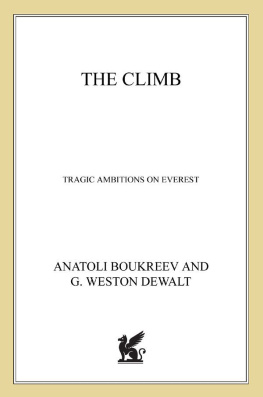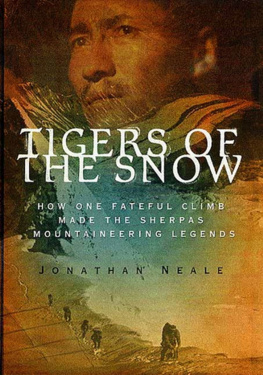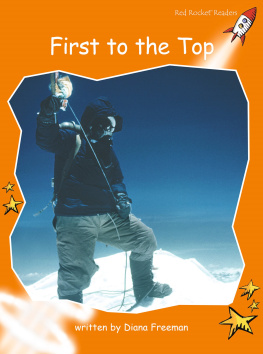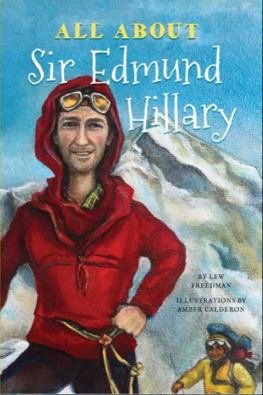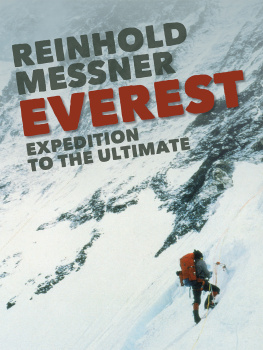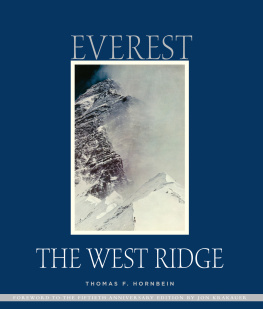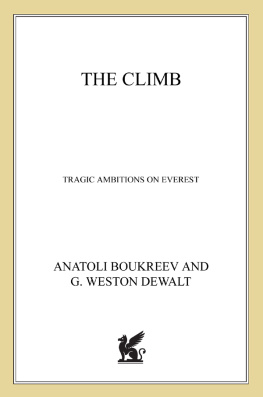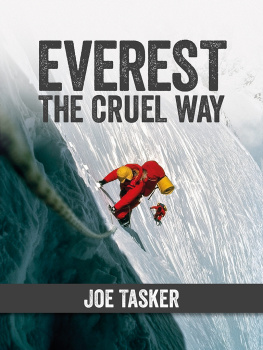
Thank you for buying this
St. Martins Press ebook.
To receive special offers, bonus content,
and info on new releases and other great reads,
sign up for our newsletters.

Or visit us online at
us.macmillan.com/newslettersignup
For email updates on the author, click here .
The author and publisher have provided this e-book to you for your personal use only. You may not make this e-book publicly available in any way. Copyright infringement is against the law. If you believe the copy of this e-book you are reading infringes on the authors copyright, please notify the publisher at: http://us.macmillanusa.com/piracy .
THIS EDITION OF THE CLIMB IS DEDICATED TO THE MEMORY OF
ANATOLI NIKOLIAVICH BOUKREEV
DIMITRI SOBOLEV
VLADIMIR BASHKIROV
BRUCE HERROD
LOPSANG JANGBU SHERPA
SCOTT FISCHER
YASUKO NAMBA
ROB HALL
ANDY HARRIS
DOUG HANSEN
NGAWANG TOPCHE SHERPA
CHEN YU-NAN
Mountains have the power to call us into their realms and there, left forever, are our friends whose great souls were longing for the heights. Do not forget the mountaineers who have not returned from the summits.
ANATOLI BOUKREEV
WITH EVERLASTING THANKS TO
LINDA WYLIE
BETH WALD
TERRY LEMONCHECK
ALEX DAVIS
SIMONE MORO
ERVAND ILINSKI
RINAT KHAIBULLIN
GENE AND SHIRLEY FISCHER
JEANNIE FISCHER-PRICE
BOB PALAIS
DYANNA TAYLOR
GARY NEPTUNE
Climbing today is not only mainstream, it is business, and with that comes the rising tendency for climbing decisionsobjectives as well as tactical decisions on a climbto be business decisions as well. The up side to that is that now climberslike skiers and sailors before themcan make a living from what they love to do. The down side can be seen in increased crowds at the crags, the proliferation of new regulations aimed at climbers, and today and forevermore, the circus at Everest Base Camp.
CHRISTIAN BECKWITH,
PREFACE , AMERICAN ALPINE JOURNAL , 1997
The mountain doesnt play games. It sits there unmoved.
BRUCE BARCOTT,
CLIFFHANGERS , HARPERS MAGAZINE , AUGUST 1996
Five days after the Everest tragedy of May 10, 1996, nine climbers sat in a circle at the Mountain Madness Everest Base Camp and recorded their thoughts and memories. Many of the details and some of the quotes in this book are drawn from those recorded recollections. Anatoli Boukreev, a participant in the taped debriefing, has drawn upon that source and wishes to thank everyone who participated. Their attempts at truth-telling and self-reflection have added considerably to the historical record. Quotes, when taken from the debriefing tapes, have been noted with this symbol:
In ancient Buddhist scriptures the Himalaya are referred to as the storehouse of snow, and in 1996 the storehouse was filled again and again as unusual amounts of snow fell in the mountains.
In the early evening of May 10, 1996, a particularly vicious storm blew into Mount Everest and lingered at its highest elevations for more than ten hours. Twenty-three men and women, mountaineers who had climbed the mountain that day from its southern side in Nepal, could not make it to the safety of their highest-altitude camp. In a virtual white-out, battered by hurricane-force winds strong enough to blow over a semitrailer truck, the climbers fought for their lives.
The mountaineers had been caught in the Death Zone, the elevations above 8,000 meters where extended exposure to subzero temperatures and oxygen deprivation combine and kill, quickly.
As the climbers fought for survival, they were often blind but for an arms length. Sometimes there were ropes to secure and guide them. The pressure gauges on their oxygen tanks fell to zero, and the raging confusion of hypoxia began to conquer most rational figurings. The foretelling numbness of frostbite pushed the possibilities of amputations from remote to probable. In the dark and the screaming howl of the storm the climbers began to bargain. My fingers for my life? Fair enough; just let me live.
Below the descending climbers, in the high-altitude camp they were struggling to reach, a Russian mountaineer and climbing guide was fighting his own battle: yelling, cajoling, and pleading with other climbers to assist him in an effort to rescue those who were above, lost in the storm.
Anatoli Nikoliavich Boukreev made a decision, one that some would later call suicidal. He decided to attempt a rescue, to go into the storm solo, into a pelting blow of snow, into a lacerated darkness, into the roar of what one climber described as a hundred freight trains passing over your head. Boukreevs efforts resulted in what the mountaineer and writer Galen Rowell would later call one of the most amazing rescues in mountaineering history.
Two weeks after the disaster on Mount Everest, Boukreev flew from Kathmandu, Nepal, to Denver, Colorado, where he was met by friends and driven to Santa Fe, New Mexico, to recuperate from his ordeal. Upon arriving, he asked to meet me, because a few months earlier, at a mutual friends request, I had arranged for him the purchase of a camera and its delivery to the Everest Base Camp. On May 28, 1996, we met for the first time.
I had seen photographs of Boukreev that had been taken prior to the events on Mount Everest. Lean, taut, with a confident smile, is how I imagined him. As I walked into our mutual friends house, he rose slowly from a chair to greet me. His eyes were sunken, tired. The tip of his nose and places on his lips were crusted in black, the telltale dead skin that comes with severe frostbite. He was distant; he looked as if hed moved out of his body and into a place that had no address.
Something about him was familiarthe hollowness, the emptiness behind the eyes. As he took a step forward to shake my hand, I made the connection: a Russian soldier Id encountered in Mozambique during the war there, sitting in the back of a canvas-covered troop transport, an AK-47 cradled in his lap. Hed looked at me with those same eyes and warned away my attempts to record him on motion-picture film. It had been a disturbing moment, not so much for the casualness with which he pointed his weapon, but for the blankness he wore on his face.
Over dinner we talked. My attempts to revive my college Russian were useless, so Boukreev spoke in English, fluid and understandable enough, but simple in its constructions. He wanted to talk about Everest, not to tell his story, but to inquire out loud about what had happened. He was trying to understand what he had just been through.
The next day we met again, and then the next, and we talked. Our mutual friend told me that Boukreev was having dreams at night, troubling dreams about being on Mount Everest, knowing that he had to get oxygen to stranded climbers whom he could never find. He never told me about the dreams, but he told me about what had happened on Everest, how he had come to the mountain, how he had left it in the last days of May. His stories were not dramatically told, not embellished. A brewed pot of tea had the same rhetorical weight as being lost in a blizzard. I came to appreciate his forthrightness, his responses to my questions that with my growing curiosity became harder and more detailed. We began to tape our conversations.
On June 3, 1996, Boukreev and I agreed to collaborate on this book. We would cooperate, yes, but I explained I would want to range beyond his experiences, to ask my own questions. The idea appealed to Boukreev. He knew some pieces, but was missing others. For his own reasons he was as curious as I about where the trail would take us.
Next page
